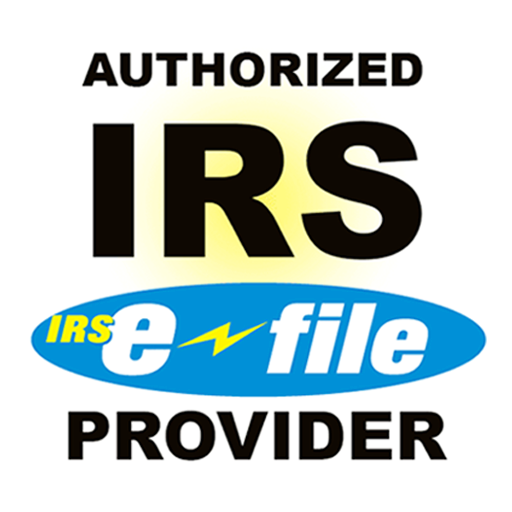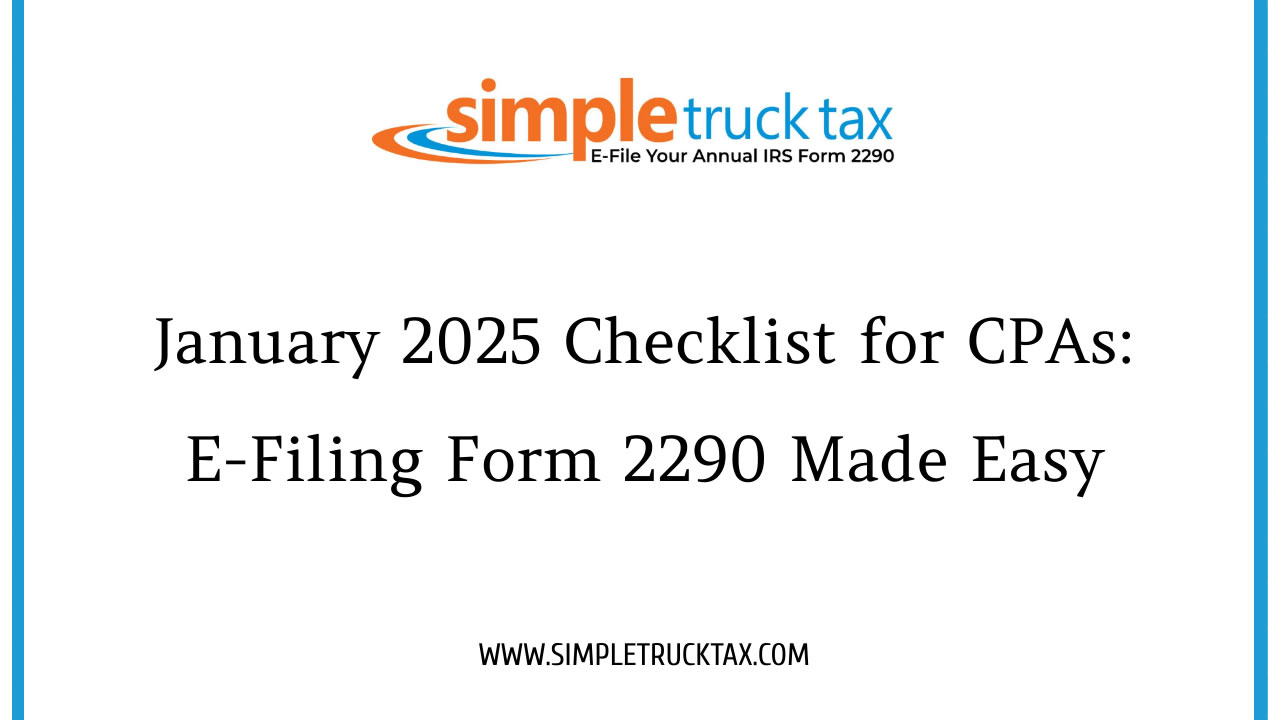01-06-2025
January 2025 Checklist for CPAs: E-Filing Form 2290 Made Easy
To get into 2025 with flying colors, CPAs need to prepare themselves for the coming deadlines and requirements on Form 2290 Heavy Highway Vehicle Use Tax. These forms must be filed by all businesses that have a vehicle or fleet of vehicles weighing more than 55,000 pounds. January is the ideal time to get ahead and review clients' compliance needs so that the e-filing process goes off without a hitch and on time. A simple checklist can save CPAs precious time and avoid errors when submitting Form 2290 electronically.
Step 1: Confirm Client Information and Vehicle Information
Before initiating the electronic filing process, it is always important to make sure that client information is complete and updated, including VIN numbers, gross vehicle weights, and reporting any fleet composition changes. If your clients have purchased or sold vehicles during the year, be sure to include this when preparing Form 2290; having all that information will allow for a more efficient process, avoiding delays.
Step 2: Select the E-Filing Service and Fill Form
The Internal Revenue Service has made e-filing mandatory for Form 2290. An approved e-file service provider has to be chosen. The e-file service provider that is user friendly, ensures the safe submission, and provides rapid confirmation of submission should be found. After this, the relevant details from step 1 are entered into the form to be reviewed before submission. Once all this is confirmed, submit the form electronically and make sure you receive the IRS's acknowledgement of receipt. This step is very important to meet the January filing deadline and avoid penalties.
Step 3: Maintain Records and File Payment
Following the lodging of Form 2290, the CPAs should then ensure that the clients submit their required payments towards any HVUT that could be levied. There is usually an electronic option to pay such obligations. The accounting firm should keep records of both the filing and payment activities. Such records should be maintained for at least three years in case there occurs any audit. This checklist will allow CPAs to streamline the process for their clients in filing timely, avoiding additional penalties, and looking ahead to 2025.
Note: For more information, visit IRS website


